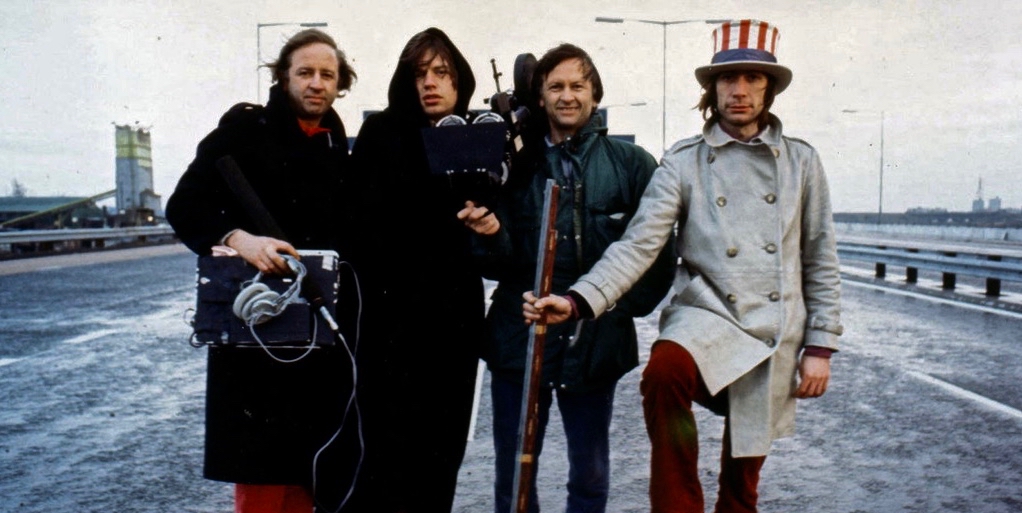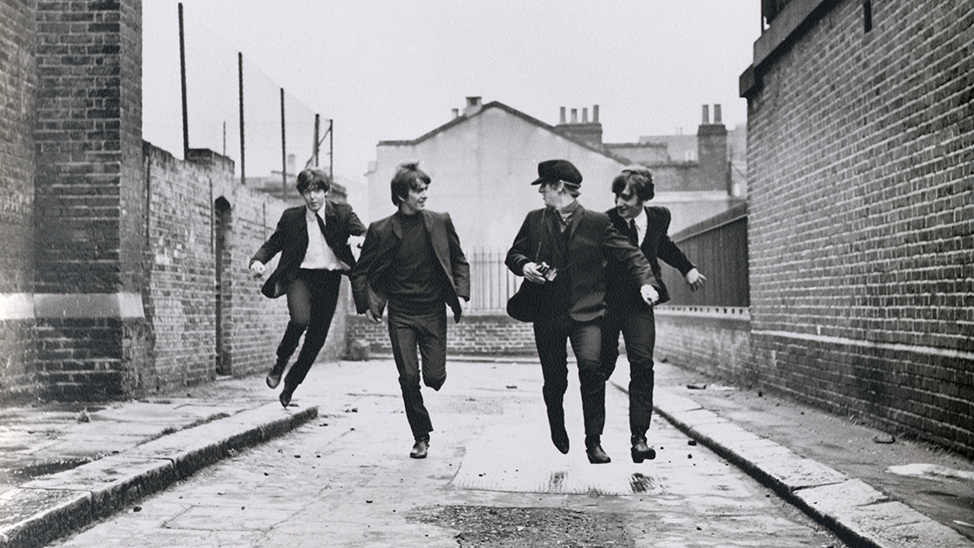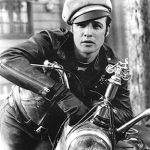In late 1969 the Rolling Stones were touring the United States for the first time in three years, having suffered through a variety of legal hassles and harassment at home and the departure and subsequent death of the group’s onetime leader and guitarist, Brian Jones (replaced by the young virtuoso Mick Taylor). A lot had changed a lot since 1964 and the T.A.M.I. Show and Mick’s lack of formal neckwear didn’t seem quite as scandalous. The band had decided it was time to bust a cinematic move and they hired the Maysles Brothers—Albert and David—and Charlotte Zwerin, to film and direct a document of the tour in which the Stones presented their bonafides as ‘the Greatest Rock n’ Roll Band in the World.’
 By the time ‘Gimme Shelter’ was released in December, 1970, everybody knew perfectly well what had transpired at the tour-ending free concert in Altamont, California. The film starts setting up the horror from the very beginning with scenes of Jagger and Charlie Watts in an editing suite looking at film clips and listening to recordings of radio broadcasts from just after the concert. Sonny Barger of the San Francisco Hell’s Angels, calling into a radio show, deflects all the blame for the Altamont disaster onto drugged up hippies and the Stones. Mick looks perplexed, Charlie mutters ‘What a shame.’ A shame it was indeed and ‘Gimme Shelter’ looks it directly in the face, recording everything with a disconcertingly unflinching eye. The movie ricochets from one locale to another, jumping to Mick and Charlie back in England on a photo shoot for the cover of ‘Get Your YaYa’s Out.’ Next, the Stones are bopping around in an Alabama motel room (with journalist Stanley Booth), hanging out backstage at Madison Square Garden, crammed into a small control room at Muscle Shoals Sound listening to mixes for ‘Sticky Fingers.’ Everyone looks zoned out. Charlie gets into a staring contest with the camera. The scene bounces from riveting stage footage at Madison Square Garden to lawyer Melvin Belli’s office in San Francisco as he negotiates to find a last-second venue for the free concert. The energy and momentum build and for a few moments the mood seems somewhat upbeat.
By the time ‘Gimme Shelter’ was released in December, 1970, everybody knew perfectly well what had transpired at the tour-ending free concert in Altamont, California. The film starts setting up the horror from the very beginning with scenes of Jagger and Charlie Watts in an editing suite looking at film clips and listening to recordings of radio broadcasts from just after the concert. Sonny Barger of the San Francisco Hell’s Angels, calling into a radio show, deflects all the blame for the Altamont disaster onto drugged up hippies and the Stones. Mick looks perplexed, Charlie mutters ‘What a shame.’ A shame it was indeed and ‘Gimme Shelter’ looks it directly in the face, recording everything with a disconcertingly unflinching eye. The movie ricochets from one locale to another, jumping to Mick and Charlie back in England on a photo shoot for the cover of ‘Get Your YaYa’s Out.’ Next, the Stones are bopping around in an Alabama motel room (with journalist Stanley Booth), hanging out backstage at Madison Square Garden, crammed into a small control room at Muscle Shoals Sound listening to mixes for ‘Sticky Fingers.’ Everyone looks zoned out. Charlie gets into a staring contest with the camera. The scene bounces from riveting stage footage at Madison Square Garden to lawyer Melvin Belli’s office in San Francisco as he negotiates to find a last-second venue for the free concert. The energy and momentum build and for a few moments the mood seems somewhat upbeat.
 By the time ‘Gimme Shelter’ was released in December, 1970, everybody knew perfectly well what had transpired at the tour-ending free concert in Altamont, California. The film starts setting up the horror from the very beginning with scenes of Jagger and Charlie Watts in an editing suite looking at film clips and listening to recordings of radio broadcasts from just after the concert. Sonny Barger of the San Francisco Hell’s Angels, calling into a radio show, deflects all the blame for the Altamont disaster onto drugged up hippies and the Stones. Mick looks perplexed, Charlie mutters ‘What a shame.’ A shame it was indeed and ‘Gimme Shelter’ looks it directly in the face, recording everything with a disconcertingly unflinching eye. The movie ricochets from one locale to another, jumping to Mick and Charlie back in England on a photo shoot for the cover of ‘Get Your YaYa’s Out.’ Next, the Stones are bopping around in an Alabama motel room (with journalist Stanley Booth), hanging out backstage at Madison Square Garden, crammed into a small control room at Muscle Shoals Sound listening to mixes for ‘Sticky Fingers.’ Everyone looks zoned out. Charlie gets into a staring contest with the camera. The scene bounces from riveting stage footage at Madison Square Garden to lawyer Melvin Belli’s office in San Francisco as he negotiates to find a last-second venue for the free concert. The energy and momentum build and for a few moments the mood seems somewhat upbeat.
By the time ‘Gimme Shelter’ was released in December, 1970, everybody knew perfectly well what had transpired at the tour-ending free concert in Altamont, California. The film starts setting up the horror from the very beginning with scenes of Jagger and Charlie Watts in an editing suite looking at film clips and listening to recordings of radio broadcasts from just after the concert. Sonny Barger of the San Francisco Hell’s Angels, calling into a radio show, deflects all the blame for the Altamont disaster onto drugged up hippies and the Stones. Mick looks perplexed, Charlie mutters ‘What a shame.’ A shame it was indeed and ‘Gimme Shelter’ looks it directly in the face, recording everything with a disconcertingly unflinching eye. The movie ricochets from one locale to another, jumping to Mick and Charlie back in England on a photo shoot for the cover of ‘Get Your YaYa’s Out.’ Next, the Stones are bopping around in an Alabama motel room (with journalist Stanley Booth), hanging out backstage at Madison Square Garden, crammed into a small control room at Muscle Shoals Sound listening to mixes for ‘Sticky Fingers.’ Everyone looks zoned out. Charlie gets into a staring contest with the camera. The scene bounces from riveting stage footage at Madison Square Garden to lawyer Melvin Belli’s office in San Francisco as he negotiates to find a last-second venue for the free concert. The energy and momentum build and for a few moments the mood seems somewhat upbeat.



